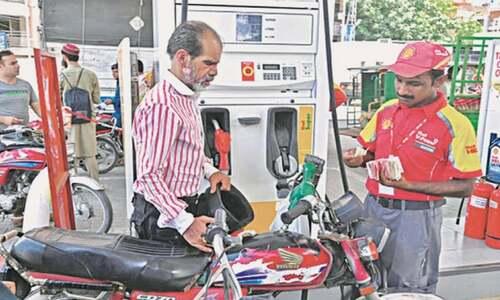FOR South Africa it was a remarkable achievement to hold the cricket World Cup after only a decade of being brought back into the sport’s international arena. That they managed to bring the competition to Africa for the first time was mainly due to the political influence of their former president Nelson Mandela and that of his trusted ally, the former Test captain of the country Dr Ali Bacher, who headed the extravaganza as director of the event. South Africa — one of the founder members of the ICC along with England and Australia — were expelled from international cricket after their emphatic 4-0 Test series win against Australia at home in 1970 under the captaincy of Ali Bacher because of their National Party’s inhumane policy of ‘Apartheid’ (segregation on racial lines) which had to be ended after fifty years following the release of their famous prisoner Nelson Mandela after the 27-year imprisonment in the Robben Island.
South Africa from their first Test against England in 1888-89 at Port Elizabeth to 1970 had not played any non-white player in their teams and their apartheid policy wouldn’t even allow them to play against the West Indies, Pakistan or India, the non-white nations.
It all came to the boil when the government of South Africa led by their Prime Minister John Vorster refused to allow the England team on their tour of South Africa because it had a cape-coloured South African Basil D’Oliviera. The series before it began then had to be cancelled and the ICC then had no alternative than to throw South Africa out in the dungeon.
It was 21 years of isolation then before they were brought back in 1991 after the release of Mandela, after the abolition of ‘apartheid’ and unending effort by Ali Bacher and his colleagues.
A year in which the white and black cricket boards of the country merged into one to form United Cricket Board of South Africa with Ali Bacher as its first Chief Executive and Krish Mackerdhuj, a lawyer of Asian descent, as its president.
To celebrate the occasion in June 1991, stalwarts like Sir Garfield Sobers, Sunil Gavaskar, Richie Benaud and the reputed writer E.W. Swanton were invited. I was also one of the guests.
It was during that visit Ali Bacher organised a meeting with the great man Mandela who was then head of the African National Congress (ANC).
Mandela’s sporting background as a champion boxer was not a secret. At his home in Soweto when Gavaskar, his wife, I and a few other guests were introduced, he welcomed us. When introduced he told Gavaskar, “You are a great man, I should have come to see you.”
Gavaskar, reacting immediately, told him that he was only a cricketer and a small person comparing to him. “No, no, you are a great man, I know,” Mandela replied.
When I asked him if he ever saw a cricket Test and whether he was interested in the game Mandela replied, “Yes, of course.
“In Durban against Australia we support visiting team. We black people were not allowed to sit in the stands. Instead we were herded inside a barbed-wire cage to watch the match. We were unhappy that South Africa was winning and we prayed for them to lose. Our prayers were heard as a left-hander Neil Harvey scored a hundred to win the match for Australia. We went home dancing at the thought of it,” Mandela added. Great story for me as a reporter.
It was with that background and his party’s victory in the first multi-racial election that he became the first black president of his country in 1994, succeeding Frederick Willem de Klerk, and remained one until 1999 before stepping down.
Only a year after his coming into office he watched at home his country win the rugby World Cup and presented the trophy wearing the number 6 shirt which the great Springbok captain Francois Pienaar wore, confirming his policy of national and international reconciliation.
The cricket World Cup of 2003 was not any different as he backed Ali Bacher and his team to stage the unforgettable event. Though South Africa did not do well in the competition, the image of his country rocketed sky high.
In the final at the Wanderers in Johannesburg Mandela’s presence as he handed over the Cup to the Australian captain Rickey Ponting was warmly applauded.
Australia’s resounding 125-run victory against India was no less than emphatic. Ponting’s 140, Damien Martyn’s 88 and Gilchrist’s 57 were as entertaining as Virender Sehwag’s blistering 82 and Rahul Dravid’s 47. In reply to Australia’s 359 for 2 India could only make 234 before being dismissed.
Unfortunately for South Africa, they could not reach the Super Six stage while Pakistan, West Indies and England also failed to do so.
Kenya and Zimbabwe made it.
Australia had won all their matches including the final. Glen McGrath had taken 21 wickets in the competition to help his side reach the glory.
Pakistan’s performance was poor, to say the least, as they won only two games and that too against minnows Namibia and the Netherlands.
I remember the Cup for Wasim Akram reaching the landmark of 500 wickets in ODIs while playing against the Netherlands at Paarl. Sachin Tendulkar’s consistency with the bat as he amassed more than 600 runs and for the hat-trick of the Sri Lankan Chaminda Vaas who on the first three balls of the Bangladesh innings claimed three wickets at Pietermaritzburg.













































Dear visitor, the comments section is undergoing an overhaul and will return soon.